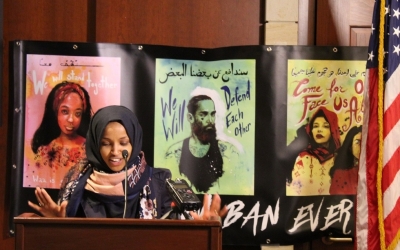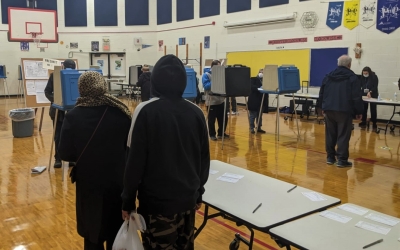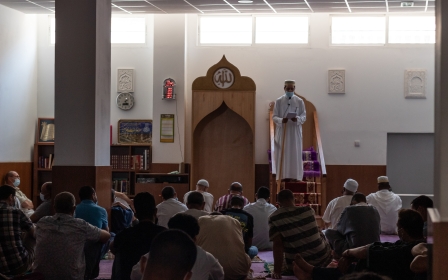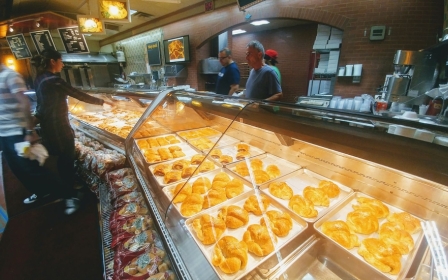Dearborn: Arab progressive comes first in mayoral primary of US city
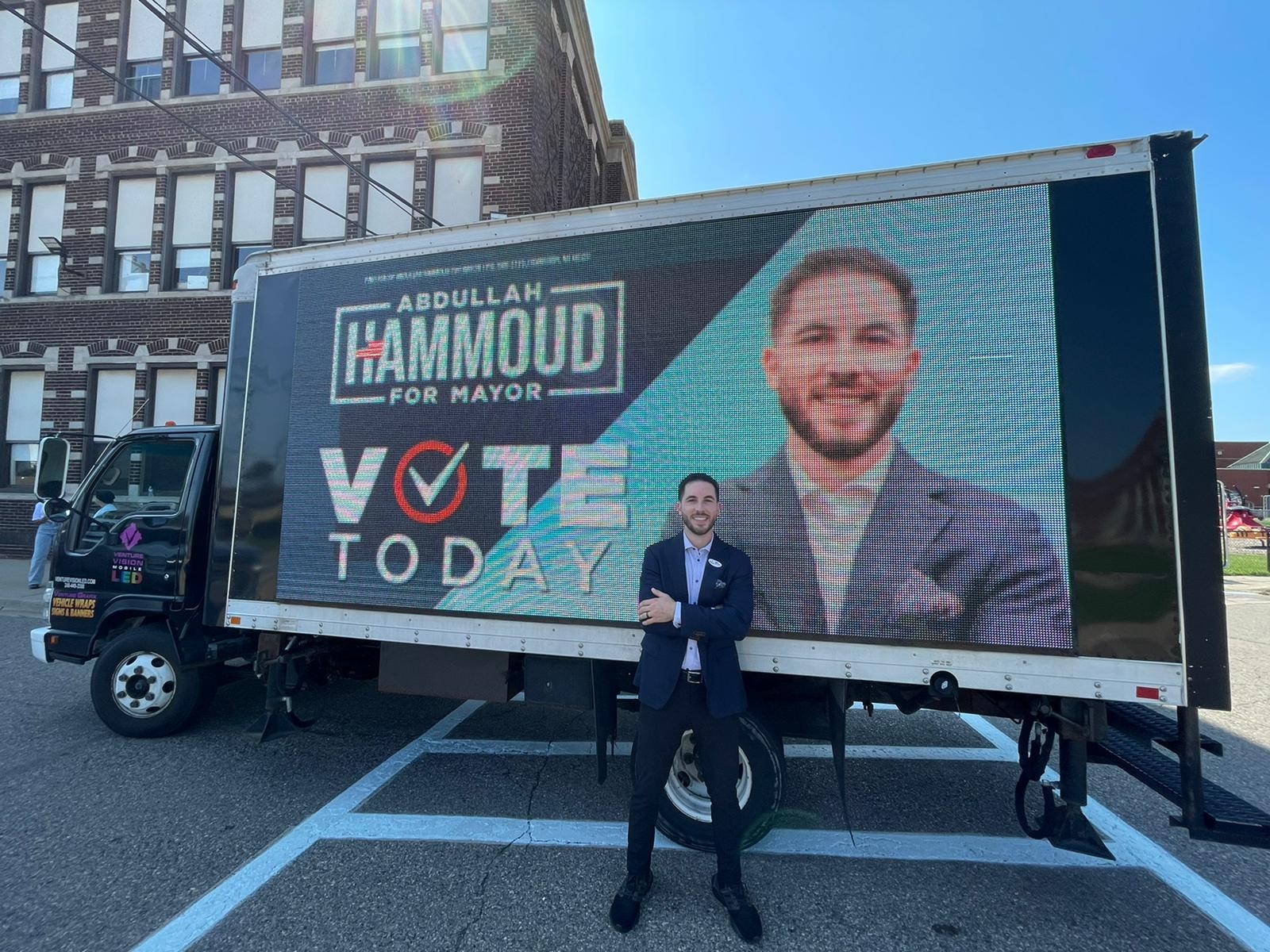
The capital of Arab America will get a chance to elect its first Arab-American mayor in November.
Michigan state Representative Abdullah Hammoud was the top vote-winner in the mayoral primary in Dearborn on Tuesday, moving to the final round of voting.
Dearborn, a Detroit suburb of 95,000 people, has one of the largest Arab and Muslim communities in the country. It also has a chequered history with racism.
If he wins in November, Hammoud will hold a position once occupied by Orville Hubbard, an advocate for racial segregation, who led Dearborn from 1942 to 1978.
When Hammoud was born in 1990, Michael Guido, who in 1985 issued campaign leaflets calling for the "Arab problem" to be addressed, was mayor of the city; he held the seat until his death in 2006. Guido later repaired his relationship with the Arab community.
New MEE newsletter: Jerusalem Dispatch
Sign up to get the latest insights and analysis on Israel-Palestine, alongside Turkey Unpacked and other MEE newsletters
"We have come a long way from the anti-Black racism of Orville Hubbard and the anti-Arab politics of Mike Guido," said Sally Howell, director of the Center for Arab American Studies at the University of Michigan-Dearborn.
Local issues
Hammoud was elected to the Michigan House of Representatives as a Democrat in 2016, and has gained a reputation as a progressive voice in state politics.
He endorsed Bernie Sanders in the 2020 presidential primaries and previously backed Abdul El-Sayed, a left-wing Egyptian-American doctor, for governor.
'It is clear that Arabs are now a solid core demographic in Dearborn and an active political class and electorate'
- Sally Howell, University of Michigan-Dearborn
The race in Dearborn is non-partisan, so it is almost entirely focused on local issues. And Dearborn is facing a lot of them. Recent flooding has left thousands of homes damaged. The city has also been hit hard by the pandemic.
Throughout these crises, the current mayor, Jack O'Reilly, has been absent from the public eye due to an unspecified illness that had not been publicly disclosed until last month.
O'Reilly is not seeking reelection. In November, Hammoud will face off against Gary Woronchak, a veteran local politician who most recently served as Wayne County commissioner.
In a pool of seven candidates, Hammoud received 8,858 votes compared with 3,889 for Woronchak.
"This election reflects tremendous change in the city of Dearborn - demographic change, cultural change, political change," Howell told MEE.
The US Census estimates that less than half of the city's population is Arab-American, but experts - including Howell - suspect the percentage is higher because of undercounting partly stemming from the fact that Arabs are considered white by the Census Bureau.
"It is clear that Arabs are now a solid core demographic in Dearborn and an active political class and electorate," Howell said.
"As their population diversifies - along national, sectarian, and immigrant generation lines - they nonetheless come together when thinking about the core issues that affect their daily lives, like pollution, traffic, infrastructure, taxes, schools, etc.
"In this case they sought a genuine change in leadership and they voted for a young, progressive candidate who reflects their history and identity, but more importantly their hopes and expectations for the future of their community."
Preliminary data suggests Hammoud did well in predominantly white neighbourhoods of the city, too.
Arab-American candidates
Abed Ayoub, the legal director of the American-Arab Anti-Discrimination Committee (ADC), a Washington-based advocacy group, said Hammoud's performance dispelled the myth that Arab candidates could not have broad appeal.
He added that he hoped the election result would inspire Arab-Americans across the country to get more politically engaged.
"Abdullah's victory shows that Arab-Americans do have a voice, do have a say and a stake in our local politics," Ayoub told MEE.
"Just as much as pushing on a federal level or on a state level, we need to fight for our local towns and local communities. Oftentimes in our community, we've overlooked these local races, but they're just as important as federal races."
Howell echoed Ayoub's point, invoking Congresswoman Rashida Tlaib's win in a Detroit-based district where Arab-Americans are not a major constituency.
"Like Rashida Tlaib's victory in Congress, Hammoud's presumed victory in Dearborn tells us that mainstream voters can look beyond media representations of Arabs and Muslims, especially when these candidates are hard workers who share the values of the communities that shaped them," she said.
Dearborn School Board trustee Adel Mozip, who has run in successive local electoral races, told MEE that while Arab candidates can win across the city, they "have to do triple the work of organising than their non-Arab-American counterparts to gain traction".
He pointed to Tuesday's elections where Arab-American newcomers in the city council race struggled to attract voters in the whiter west side of town.
As for Hammoud's first place finish, Mozip said: "I believe Abdullah’s candidacy was focused on bringing change to City Hall. His messaging and work on the ground helped him gather many votes from all corners of the city. The recent flood and the city's response also changed the game."
Middle East Eye delivers independent and unrivalled coverage and analysis of the Middle East, North Africa and beyond. To learn more about republishing this content and the associated fees, please fill out this form. More about MEE can be found here.


